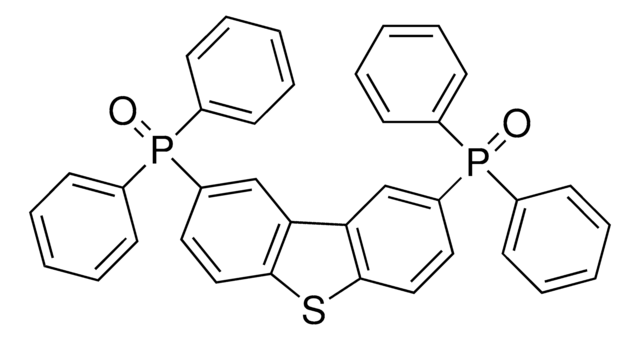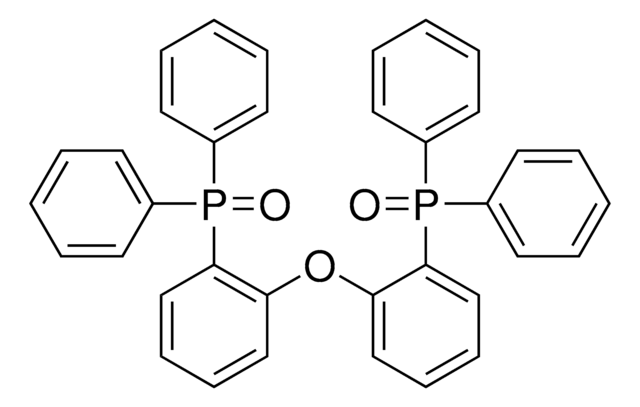685720
3-(Biphenyl-4-yl)-5-(4-tert-butylphenyl)-4-phenyl-4H-1,2,4-triazole
97%
Synonym(s):
TAZ
About This Item
Recommended Products
Quality Level
Assay
97%
form
solid
mp
231-235 °C
fluorescence
λex 280 nm; λem 372 nm in chloroform
Orbital energy
HOMO 6.4 eV
LUMO 2.8 eV
OLED Device Performance
ITO/HMPD/TAZ:Ir(ppy)3 (7%)/Alq3/Al:Li
ITO/PEDOT:PSS/BCC-27: FIrpic (10 wt%)/TAZ/Cs2CO3:Al
ITO/PEDOT:PSS/NPD/TCTA/m-CBTZ:FIrpic (10 wt%)/DPPS/TAZ/LiF/Al
ITO/PEDOT:PSS/NPD/TCTA/p-CBTZ:FIrpic (10 wt%)/DPPS/TAZ/LiF/Al
SMILES string
CC(C)(C)c1ccc(cc1)-c2cc(cc(c2)-c3nc[nH]n3)-c4ccc(cc4)-c5ccccc5
InChI
1S/C30H27N3/c1-30(2,3)26-20-18-25(19-21-26)29-32-31-28(33(29)27-12-8-5-9-13-27)24-16-14-23(15-17-24)22-10-6-4-7-11-22/h4-21H,1-3H3
InChI key
ZVFQEOPUXVPSLB-UHFFFAOYSA-N
Related Categories
Application
Signal Word
Warning
Hazard Statements
Hazard Classifications
Acute Tox. 4 Oral
Storage Class Code
11 - Combustible Solids
WGK
WGK 3
Flash Point(F)
Not applicable
Flash Point(C)
Not applicable
Personal Protective Equipment
Choose from one of the most recent versions:
Certificates of Analysis (COA)
Don't see the Right Version?
If you require a particular version, you can look up a specific certificate by the Lot or Batch number.
Already Own This Product?
Find documentation for the products that you have recently purchased in the Document Library.
Customers Also Viewed
Articles
Since their discovery, organic light emitting devices (OLEDs) have evolved from a scientific curiosity into a technology with applications in flat panel displays and the potential to revolutionize the lighting market. During their relatively short history, the technology has rapidly advanced, and device efficiencies have increased more than 20-fold, approaching the theoretical limit for internal quantum efficiencies.
Our team of scientists has experience in all areas of research including Life Science, Material Science, Chemical Synthesis, Chromatography, Analytical and many others.
Contact Technical Service












